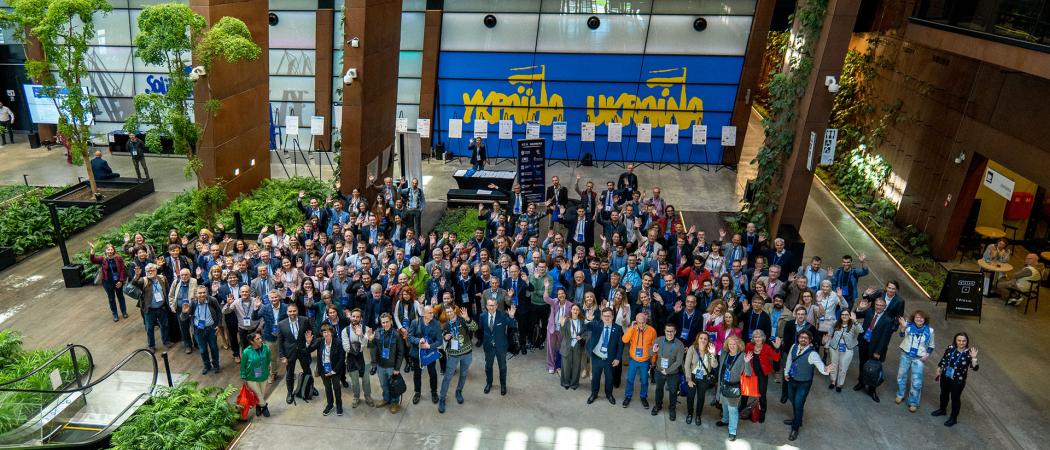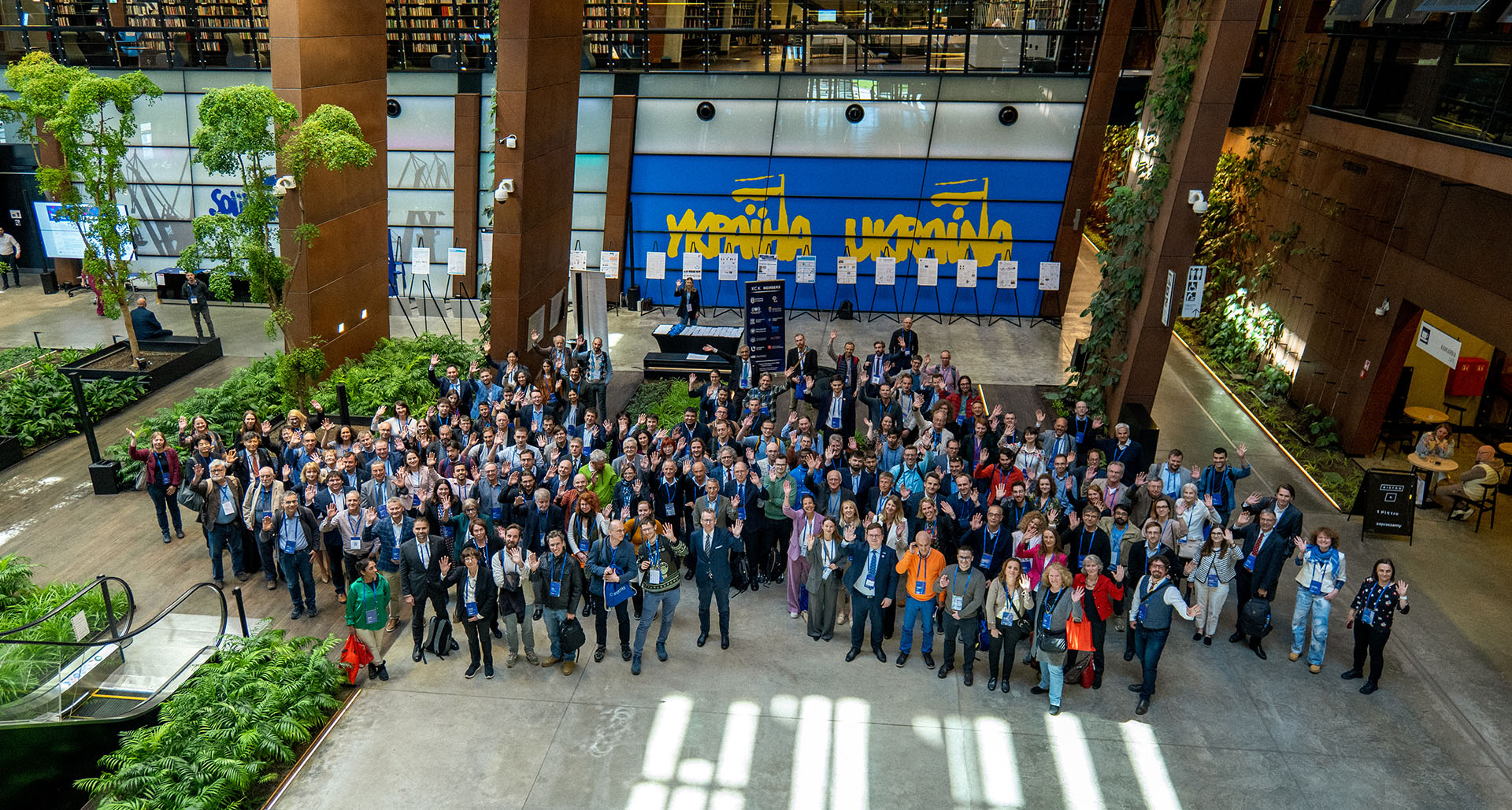Europe’s quantum technologies network has launched a new call for international research projects and expanded its consortium to include South Korea

QuantERA Strategic Conference 2025 in Gdańsk, Poland
In the 1980s, John Clarke, Michel Devoret and John Martinis detected quantum phenomena, which had long remained purely theoretical, in large, stable circuits composed of billions of particles, as well as in single atoms.In 2025, they were awarded the Nobel Prize in Physics for this experiment. Over the past five years, the Royal Swedish Academy of Sciences has honoured nine researchers expanding the frontiers of quantum technologies (QT): in 2023 Anne L’Huillier, Pierre Agostini and Ferenc Krausz for attosecond physics, and in 2022 Alain Aspect, John Clauser and Anton Zeilinger for work on entangled photons.
Quantum technologies are now seen as key to future innovation. They may soon transform the way we measure matter, process data and transmit information. They will enable more precise diagnostics, more secure communication, new materials design and advanced modelling. QuantERA – a transnational network supporting quantum research - is a driving force in this transformation.
Well-established network
The QuantERA network is one of Europe’s largest and longest-running initiatives in quantum technologies, bringing together over 40 research-funding agencies from over 30 countries. The programme’s direction is guided by a strategic advisory board featuring Nobel laureate Alain Aspect. Since its launch in 2017, QuantERA has grown through three editions – I, II and now III – launched in June 2025. With more than €117 million in provided funding, the programme has supported over 100 projects uniting nearly 550 research groups and more than 2,000 individual scientists. “We invest in quantum research that connects people, strengthens excellence and promotes responsibility, both internationally and across sectors”, says Elżbieta Hryniewicka, the network’s coordinator from the National Science Centre Poland.
The network funds ambitious projects focused on both theoretical foundations and cutting-edge engineering in the quantum field. It monitors QT programmes and strategies across Europe, supports knowledge exchange and promotes responsible research and innovation (RRI).

QuantERA Strategic Conference 2025 in Gdańsk, Poland
Call for fresh ideas
This year, QuantERA launched a new call for international research projects and expanded its consortium to include South Korea.
The QuantERA Call 2025, open until 5 December, invites international consortia comprising at least three countries participating in the programme. “This is the time to act – to put forward new ideas, consult them and build teams. The call offers a real opportunity to turn new ideas into projects at the international level”, says Professor Konrad Banaszek, the network’s scientific coordinator.
The call covers the full spectrum of quantum research. Projects can be submitted in one of two topics: quantum phenomena and resources (QPR) and applied quantum science (AQS). “In our calls, the network casts a very wide net to capture new ideas and concepts in the field of quantum technologies. Previous editions have shown that this model works – project results are published in leading scientific journals and presented at major international conferences”, adds Prof. Banaszek.
Professor Adam Wojciechowski from the Jagiellonian University in Kraków, a QuantERA Call 2023 grantee, speaks about the benefits of bringing together teams from different countries. “PhD students from individual groups can work within partner teams, gaining access to unique equipment and direct contact with world experts in quantum physics. The programme fosters the exchange of knowledge and experience, as well as the planning of future research”, he emphasises. Wojciechowski also points out the relatively high success rates in QuantERA calls compared to other initiatives. In the first editions of the QuantERA calls, the success rate was about a dozen percent, while in recent years it has reached nearly 24% and 30%.
In the AQuSeND project, Prof. Wojciechowski, together with researchers from University of Ulm and University of Murcia, are investigating how to transfer the measurement capabilities known from large diamond crystals to the nanoscale level and develop new detection methods that will enable exceptionally precise measurements of magnetic fields and temperature at the nanoscale. “Just a few years ago, it seemed that nanodiamonds had poorer parameters than macroscopic diamond plates; today, we know that many of these limitations can be effectively overcome. I believe that in the coming years this will lead to increased interest in the commercial production of nanodiamonds for use in quantum sensing”, explains Prof. Wojciechowski. Those methods may find applications in materials and biological research, where exceptionally precise measurements at the nanometre scale are required.
Global reach
QuantERA, coordinated by the National Science Centre Poland, brings together research-funding agencies from EU member states and associated countries, including Switzerland, the United Kingdom, Israel and Turkey. For the first time, teams funded by the National Research Foundation of Korea will take part in the QuantERA call.
Over the past few years, South Korea has been steadily building its capacity in the field of quantum technologies. In 2021, the government announced the National Strategic Plan for Quantum Science and Technology, setting out four priorities: supporting fundamental research, developing human resources, building infrastructure – including test laboratories and facilities for producing quantum components – and fostering collaboration with industry. Subsequently, a new national strategy and a dedicated law supporting the sector were adopted, and the Quantum Strategy Committee was established to coordinate funding and activities in this field. “We are consistently strengthening international cooperation to advance the national quantum sector. Participation in the QuantERA network allows us to fund projects carried out jointly with Europe’s most advanced countries”, says Kim Seok-Ho, programme officer at the National Research Foundation of Korea (NRF). Korea brings to the network a strong technological foundation and a fresh research perspective that can accelerate the development of joint projects.

Handover of the Letter of Intent by the NRF delegation to the QuantERA Coordinator
In line with its active international engagement, QuantERA will participate in the European Quantum Technologies Conference (EQTC) in Copenhagen on 10–12 November. In collaboration with the Quantum Flagship, the network will join a roundtable on transnational collaboration and national strategies, and showcase its ongoing research projects during the poster session.





 A unique international forum for public research organisations and companies to connect their external engagement with strategic interests around their R&D system.
A unique international forum for public research organisations and companies to connect their external engagement with strategic interests around their R&D system.